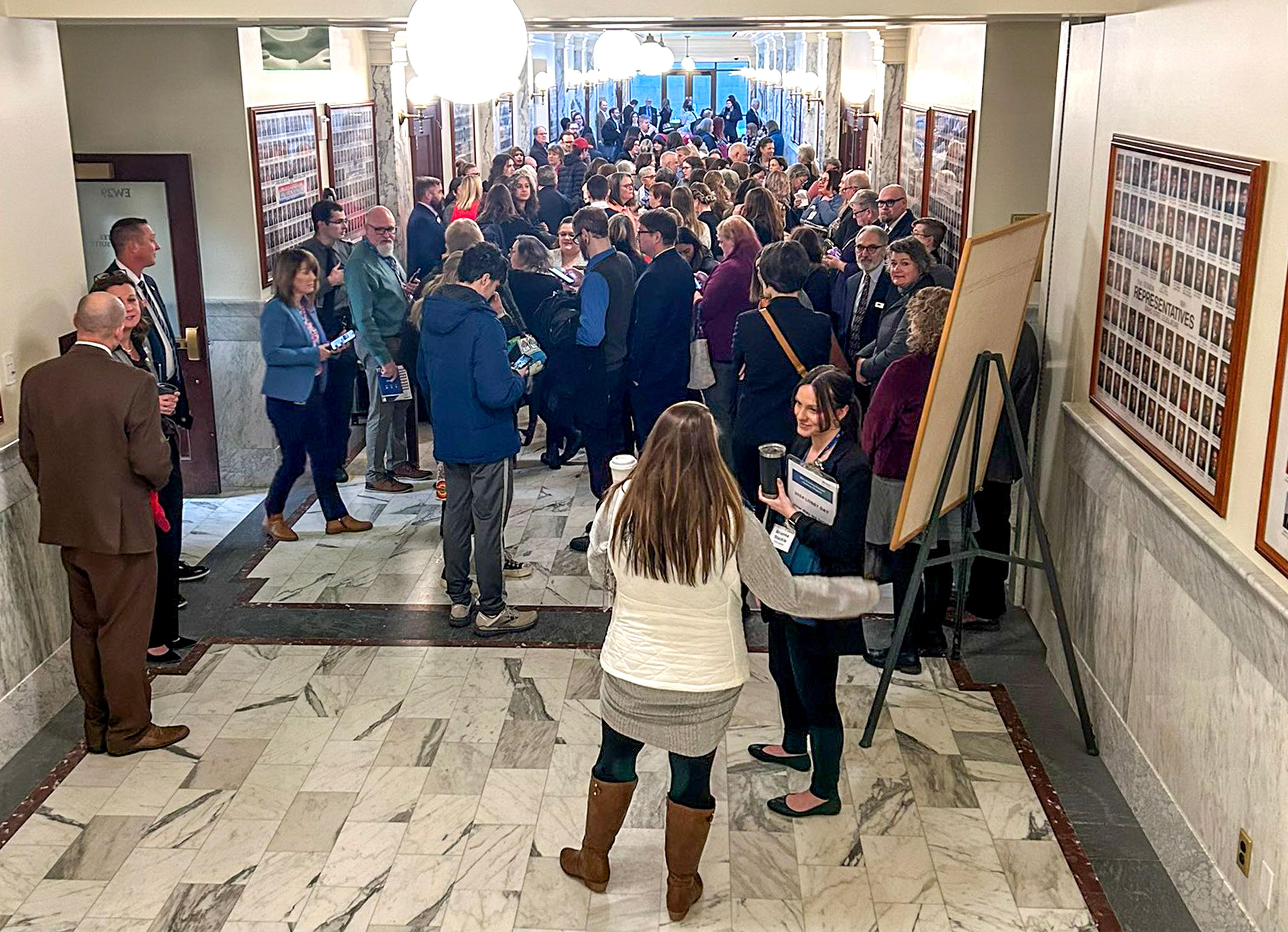Hundreds attend hearing for ‘harmful materials’ in libraries at Idaho Statehouse
Legislation now heads to the Idaho House for a vote
BOISE — This year’s bill regarding “harmful materials” in libraries is heading to the House floor.
The House State Affairs Committee on Monday voted along party lines in favor of HB 384, which would require school and public libraries to have a form available for patrons to request materials be moved to an adult section in the library and would allow them to sue the district if it’s not moved. The legislation would also apply to private school libraries.
The committee heard nearly two hours of in-person testimony and hundreds of people who signed up to testify; more than 400 of those who signed up indicated they were against the bill and around 72 were in favor.
“It’s taken two years of talking with folks to get to this place,” Rep. Jaron Crane, R-Nampa, told committee members. “It is a good compromise, it is a good bill.”
The bill is similar to HB 314, which passed both chambers last year but was vetoed by Gov. Brad Little. Crane said he addressed the governor’s issues with the previous legislation — which were that he wanted to prevent frivolous lawsuits and not bankrupt libraries.
The new bill allows individuals to file a civil cause of action against the school or library district for $250 as well as attorneys fees and other damages.
Many of those who testified against the bill Monday were involved in libraries or retired librarians, and they said these decisions should be left to local jurisdiction and could be burdensome on some libraries.
“We cannot afford to do this,” Robert Wright, director of the Idaho Falls Public Library, said.
He said it would be difficult to restrict minors’ access to the adult sections of their library and could be even more onerous to small, one-room libraries around the state.
Wright said his library has a strong process and policy to restrict minors’ access that puts parents in control of what their children read. Patrons younger than 18 cannot check out books until they have a parent or guardian say what type of materials they can borrow.
Rep. Julianne Young, R-Blackfoot, asked Wright, and many of the others who testified, if he thought “graphic sexual content is harmful” to minors.
Wright responded that sometimes there are children who have been abused who find that material to be helpful for them to explain what happened to them.
“Yes, it can be,” he said, choking up. “But it can also be helpful. That’s why we allow parents to make those choices.”
Shane Reichert, general counsel for the Idaho Education Association, said the language in the bill raised legal concerns because some of it was “overly broad” and that he believed it still would lend itself to frivolous lawsuits.
Many of those who testified in favor of the legislation said the processes in their local jurisdictions weren’t working, and they still had materials they found objectionable in their libraries.
Rachelle Ottosen is on a library board in northern Idaho and said they are having a hard time changing its materials policies because the changes are being met with resistance. She was in favor of the bill because it’s “cheap and easy” to comply with.
“It’s mind-boggling that adults demand children have access to sexually explicit materials,” Ottosen said. “But they said we can’t be stricter than state law and the policy process is stymied.”
The Community Library Network was told by a former board member that if it implements its drafted policies on harmful materials for minors, it would likely face litigation, the Coeur d’Alene Press reported.
Jackie Davidson is a District 1614 precinct committeeperson and former Republican candidate for the House of Representatives. She brought in a number of thick books that she mostly didn’t identify and said she got them from the teen section from a Boise library.
“They’re grooming books, and promoting homosexuality and gender dysphoria,” Davidson said.
One book she mentioned was “A Red Hood,” which is designated under “teen fiction.”
Many of those who opposed the legislation had concerns about the language in Idaho’s existing obscenity code that includes “any act of homosexuality” in its definition of “sexual conduct.”
Isabella Burgess is a college student and associate librarian in Meridian.
“Representatives, the homophobia in this bill is blatant,” she told the committee. “... Homosexuality does not equate to obscenity. It is your choice to sexualize children’s books.”
Crane said he thought it would take a separate piece of legislation to change the state’s definitions of obscenity.
Rep. John Gannon, D-Boise, opposed the legislation, because it had “very broad and general language,” which he thought would make it “ripe for legal disputes and legal abuse.”
He thought it should emphasize injunctive relief from an elected prosecutor rather than action through private attorneys. He also said many of the issues can be addressed in local library or school board elections.
HB 384 passed the committee in an 11-2 vote.
The bill will go to the full House for a vote. Last year, HB 314 passed in a 40-30 vote off the floor; however, there weren’t enough votes later to override the governor’s veto.
Guido covers Idaho politics for the Lewiston Tribune, Moscow-Pullman Daily News and Idaho Press of Nampa. She may be contacted at lguido@idahopress.com and can be found on X @EyeOnBoiseGuido.









